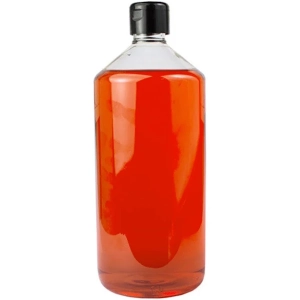When I google "fish oil for dogs" or something like that, I get really sad with what I see: misleading information, fish oil from farmed fish, transparent bottles, "kilo bangers" and so on.
I am a huge proponent of supplementing your pet's diet with fish oil, but giving the wrong fish oil can do more damage than adding something good to the diet.
For this reason I want to write an article about what you should pay attention to and how you can choose a good fish oil for your animal (and yourself). What I write is my opinion based on reading many articles and (scientific) documents.
Step 1:
Choose a fish oil made from wild fish, not farmed fish
First of all: be careful with salmon oil
Wild salmon oil is expensive, and few brands use it. So if it says salmon oil (without the term "wild"), then it is farmed salmon. The place where it was caught also indicates that it concerns farmed salmon. Scotland and Norway, for example, are among the largest farmed salmon producers in the world.
What's wrong with farmed salmon?
In 2021, research was carried out at 22 farms of the 5 largest salmon producers in Scotland. Underwater filming was conducted at 6 nurseries. Among other things, serious infections with sea lice were found, leading to damaged and open skin, blindness, and even missing pieces of meat. There were dead fish floating in the cages, and under the cages there was feces and food residue several feet deep. There is also major environmental pollution due to waste and chemicals in the water and the dumping of dead fish. There is a short video on YouTube that you should really be able to handle.
Also Norwegian salmon: we associate that as a salmon growing up in the clean, cold waters in Norway. But research has also been done into this (“ Farmed Norwegian Salmon World's Most Toxic Food ”), and the results are shocking! Bins full of pesticides are put in the bins, antibiotics, the fish are even given food that contains toxins, the fish sit close together and eat each other's feces. Moreover, farmed salmon are fatter than wild salmon, and if you know that pesticides (toxins) are stored in fat, you wouldn't want to give this to your animal, would you?
So it is better not to use fish oil made from farmed fish.
Step 2:
Pay attention to sales texts such as:
“A source of Omega 3”
“This fish oil contains a large amount of omega-3 fatty acids EPA and DHA”
“a source of omega 3”.
In my article “ Fish Oil – What is it good for ?” I write that linseed oil can be converted by the body into Omega 3. In other words, linseed is a source of omega 3. Unfortunately, this conversion is very inefficient in humans, and even more inefficient in animals!
So if it is written “a source of omega 3” then this is most likely not fish oil, but linseed oil or another vegetable oil with ALA, such as rapeseed oil or walnut oil!
“highly concentrated Omega 3”
Here the sellers aim at consumer knowledge: namely, the average consumer does not know what "highly concentrated" or how much Omega 3 is. So when the consumer sees figures such as 160mg EPA and 180mg DHA, it seems like a lot, but in fact this is enough as a maintenance dose for a small dog.
Oil and Grease can become rancid due to a process called oxidation Oxidation occurs when fat molecules react with oxygen from the air, leading to the breakdown of the fat structure and the formation of unwanted substances. Light, heat and metals can also accelerate this process. The fat molecules undergo chemical changes, causing the (fish) oil to smell and taste strongly.
It is therefore important to expose the fish oil to air and light as little as possible by, for example, taking fish capsules light-tight bottle that you keep in the refrigerator for a maximum of 2 months.
Also make sure that the TOTOX value of the fish oil is known and is tested regularly. TOTOX stat for TOTAL OXIDATION value. The European guideline for the TOTOX value is 30 . The GOED (the Global Organization for EPA & DHA) guideline is a maximum of 26
Step 3:
Pay attention to the purity and contamination of the fish oil
Fish may contain contaminants such as heavy metals (e.g. mercury), PCBs and dioxins. Choose a fish oil that has been tested for purity and has third-party results available to ensure the absence of contaminants. In addition, the smaller the fish, the less the fish contains heavy metals and other contaminants.
Step 4:
Or just shop in the Big Dog Company store
Do you want to be assured of good fish oil? Then shop in our webshop for the best fish oil. Are you stuck? Call us on 0634146116.

